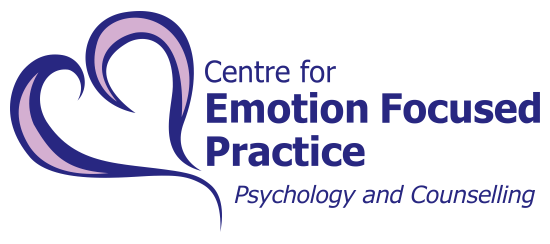Anxiety and Generalised Anxiety Disorder
Understanding Anxiety Is your Key to a Better Life
Anxiety is a normal condition that everyone experiences at some point in their lives. It becomes a problem when anxiety becomes an overwhelming concern that negatively impacts your daily existence. If you find that you are always worrying about impending disasters when the skies are sunny and blue then why not learn more about anxiety disorder, and how to overcome this condition? Generalized Anxiety Disorder is a very common problem, and this article will seek to offer some valuable information about only this specific anxiety disorder.
Defining Anxiety (GAD)
Doctors now categorize patients with excessive anxiety as having a Generalized Anxiety Disorder, also known by its acronym, GAD. Those individuals who experience GAD are overwhelmed by enormous anxieties and worries, although there are no obvious causes that are triggering their anxiety.
These are the individuals who constantly fret about their jobs, their health and their families even though there are no reasons to worry.
As time goes on these worries and anxious feelings become an imagined reality that feels ‘larger than life. Even though an individual may realize their anxiety is based on such unrealistic scenarios they feel helpless to overcome their thoughts. The anxieties can become so prevalent in your life that you will begin to be controlled by your fear and worry.
What Causes Anxiety?
There are several main categories that have been identified as possible root causes for anxiety disorders. These are the chemical make-up of the brain; your genetic history and the events that are ongoing in your basic environment. Although no one cause has been linked to GAD these are the ones that researchers have found to be the most likely culprits.
Chemistry of the Brain. With a problem such as GAD, researchers have discovered that there is an abnormal level of specific (chemical) compounds that are being naturally produced by the brain. These compounds are responsible for helping an individual process and direct information through the body’s internal network. When the chemical balance is altered your brain is unable to direct the proper responses and this leads to the development of higher levels of anxiety.
Genetic DNA
You cannot select your family DNA, and your genetic blueprint may have a major role in whether or not you will suffer from anxiety disorders. It is now thought that a predisposition for GAD (generalized anxiety disorder) could be an inherited trait.
- Individuals who frequently use alcohol, nicotine or even caffeine are more likely to suffer from problems related to anxiety. Many people try to self-medicate themselves when those anxieties become a dominant factor in their lives. Likewise, when someone is trying to break free of this habit, the unresolved issues will trigger a higher level of anxiety.
- Life Events/Environment
- Major life changes such as divorce; the death of a loved one; moving to a new location or a new job can trigger anxiety. Other issues in your environment that can cause anxiety or GAD include family conflicts; mental and physical abuse; being taught to suppress your feelings and a dysfunctional family life.
Signs and Symptoms of Anxiety
Most individuals who are experiencing anxiety disorder will exhibit symptoms such as
- Inability to view ordinary problems in a realistic manner
- Feeling ‘jittery’ and ‘on-edge’??
- Overreacting to petty annoyances
- Being easily startled regardless of circumstances and surroundings
- Expecting disaster and feelings of impending doom
- Constant worrying and tension
- Increased irritability
- Being easily distracted
- Headaches
- Inability to concentrate
- GI upsets (diarrhea, nausea, vomiting)
- Lack of focus
- Difficulty concentrating
- Insomnia
- Feelings of helplessness
- Extreme mental and physical fatigue
- Racing heart or heart palpitations
- Nervous tics, tremors or inability to stay seated for more than a few minutes at a time
- Inability to fully relax
***Anxiety is frequently accompanied by other emotional issues. A person who is suffering from generalized anxiety disorder may also have OCD, panic attacks or a particular phobia. Many of the patients who are diagnosed with GAD are also diagnosed with depression.
Diagnosing Anxiety and GAD
Health professionals will evaluate your condition with a physical exam and a lengthy review of your medical/family history. The physical exam will allow the doctor to rule out any underlying, physical problem that may be causing the anxious feelings.
The diagnosis of anxiety and GAD will be based on the symptoms a patient displays as well as the individual’s specific complaints. There is no lab test or physical that will definitively prove that a patient is suffering from anxiety. However a physician can make an appropriate diagnosis based on personal findings during the time spent with a patient.
A doctor is looking for the severity of the symptoms as well as the length of time that the symptoms have been present. It is also important to determine whether there is any dysfunction present that can be directly attributed to the problem of anxiety. If a patient has experienced more anxiety filled days than normal days over a period of six months (or longer), and is missing time at work or school because of their anxieties, then a physician will usually make a diagnosis of GAD.
Treating Anxiety
Relaxation techniques such as meditation, deep diaphragmatic breathing and yoga have all been found to be helpful therapies for dealing with anxiety.
Many physicians will recommend medication to alleviate the signs and symptoms related to anxiety and generalized anxiety disorder. Benzodiazepines such as Ativan, Valium, Zoloft, Lexapro, Effexor and Xanax are some of the prescription medications that can be used to help relieve tension, aid with relaxation and induce feelings of calmness. While some of these medicines can have an immediate effect on patients, others will require a few weeks before the benefits are going to be noticed.
Therapy is also going to provide benefits for anyone who is suffering from any form of anxiety. Cognitive-behavior techniques are frequently seen as the best therapeutic model to use with patients diagnosed with anxiety and GAD.
This type of therapy helps the individual recognize the negative thoughts that trigger feelings of anxiety. Once they are able to identify the triggers and consequent thought patterns they can face the problem ‘head-on’. This empowers the individual to take charge of their life, eliminate unhealthy thought processes and regain a more realistic view of the world around them. Recognizing and changing the behavior and thought processes that give birth to feelings of anxiety has proven to be a highly effective therapy for patients with GAD.
Prognosis
While a patient with an anxiety disorder may feel helpless and alone the good news is that this condition can be controlled with proper treatment. There is no magic cure for anxiety, but with a well-designed treatment plan it is possible to regain control of your life and function normally.
Final Facts
It is estimated that 4-5 million US adults will be affected by GAD each year, and many more cases will be diagnosed in other countries around the world.
Anxiety issues are usually triggered during childhood, or the adolescent years. Over time these problems with anxiety will begin to increase
A smaller percentage of patients will begin to experience anxiety problems as adults.
Currently there are more female patients with anxiety disorders, although some experts believe that men are simply better at hiding their emotional distress.





[…] we need to stop to take a breather. At other times, emotional upheavals bring us to a halt. Stress, anxiety, anger, bitterness, and other painful emotions have a toxic impact on […]